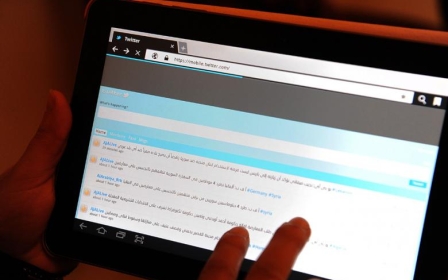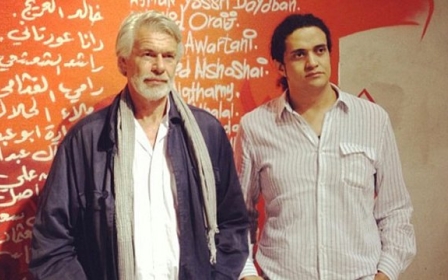Kuwait's top court upholds jail term for activist over Twitter 'insults'

Kuwait's supreme court has upheld a four-year jail term against an online activist for insulting judges on Twitter.
The court, whose rulings are final, convicted Ahmad Fadhel on Monday for writing comments on Twitter deemed offensive to a number of judges, the court verdict said.
Three top judges sued the activist, claiming they were subjected to defamation.
A lower court issued the same sentence against Fadhel in October 2014. The ruling was also upheld by the appeals court in February last year.
Courts in the oil-rich Gulf state have sentenced dozens of Twitter users to jail terms, mainly for insulting the country's ruler and others are still awaiting trial on similar charges.
Since a political crisis in June 2012, Kuwaiti authorities have ramped up efforts to curtail dissent.
Courts have sentenced politicians, online activists and journalists to prison terms for exercising free speech rights, according to Human Rights Watch.
In 2015, HRW called Kuwait’s cyber-crime law “a blow to free speech.”
"This new law comes at a time when Kuwait is prosecuting many opposition politicians and activists, journalists, and other government critics using expansive interpretations of moral imperatives and national security requirements," said Sarah Leah Whitson, Middle East director.
"It appears designed to allow the authorities even wider legal latitude to curtail Kuwaitis’ right to free speech."
Key opposition leader and former parliamentarian Mussallam al-Barrak has been in jail for a year, serving a two-year jail term for insulting the country's ruler at a public rally.
In the UAE, a British national has been imprisoned for the past two years, also under cyber-crime laws.
David Haigh is facing charges relating to tweets about his former employers, with whom he is in a business dispute.
The former managing director of Leeds United Football Club, who initially faced fraud charges, was due to be released on November 16, 2015 but is now facing new slander charges under the cyber-crime law.
“If UAE businessmen can have their partners locked up when they don’t like the tone of their tweets, one has to question whether the UAE is a safe place to make any form of criticism,” said Joe Stork, deputy Middle East director at HRW.
New MEE newsletter: Jerusalem Dispatch
Sign up to get the latest insights and analysis on Israel-Palestine, alongside Turkey Unpacked and other MEE newsletters
Middle East Eye delivers independent and unrivalled coverage and analysis of the Middle East, North Africa and beyond. To learn more about republishing this content and the associated fees, please fill out this form. More about MEE can be found here.




